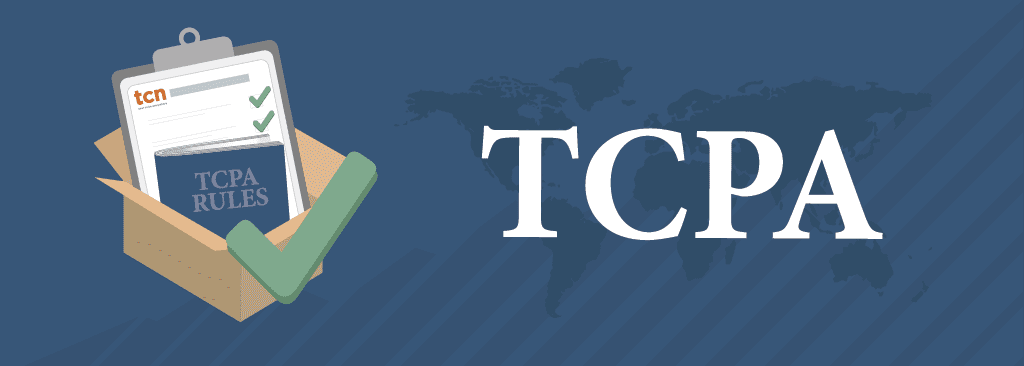How Can Managers Help Keep Agents TCPA Compliant?
It’s an unfortunate fact:
Agents won’t stay TCPA compliant on their own. That responsibility falls squarely on the shoulders of managers.
And managers need to make sure they do keep their agents TCPA compliant because lawyers are ready and willing to sue any call center caught in noncompliance.
TCPA litigation has increased by 1,273% from 2010-2016, according to The Association of Credit and Collection Professionals (ACA International).
Read on to discover how managers can help their agents stay TCPA compliant and avoid unnecessary lawsuits.
6 Ways Managers Can Help Keep Agents TCPA Compliant
1. Give Agents the Tools to Remain TCPA Compliant
Agents perform best when they have high-performance tools.
For agents making calls in highly regulated situations, it would be better to opt for a manual dialer and use what’s called manually approved calling (MAC).
MAC calling provides a tool that makes agents a part of a dialing program. It can speed up the process of human-made calling by providing numbers, recipient data and other critical concerns BEFORE placing a call.
Regardless, managers should provide the tools agents require to serve the customer and stay TCPA compliant.
2. Consistently Train Agents in TCPA Compliance
Agents won’t stay TCPA compliant if they aren’t trained on how to do it.
But also, agents won’t retain what they learned about TCPA compliance, especially when the TCPA makes new updates or there are new rulings on its regulations.
The solution?
TCPA training once a year or so. You could even add on other training for regulations like HIPAA or PCI-DSS, should they apply.
This practice will help agents retain what they know and practice compliance consistently.
3. Change How They “Sell It” to Their Agents
Most of the time, the implication that “you have to follow TCPA guidelines or we’ll all be out of a job” is the plain and simple method of reinforcing the value of compliance.
Now, that fear-based approach can work, but it doesn’t inspire agents to go above and beyond to guarantee TCPA compliance. They’re somewhat removed from the potential lawsuits the company could endure, so they don’t internalize the need to be TCPA compliant as much as a manager would.
Instead, managers should attempt to show them the benefits of TCPA compliance: “By following TCPA guidelines, you’ll better engage callers, ensure you reach customers in the way they prefer and make more calls in less time. Win-win.”
This makes TCPA compliance look less like annoying red tape and more like another tool in an agent’s arsenal.
4. Create Policies and Procedures for Following the DNC List
The DNC list is perhaps the most important list in any call center.
To make sure agents don’t call someone on the DNC list, managers need to do the following:
- Develop a written policy and procedures for the DNC list.
- Distribute the DNC policy and procedures to every agent and make it available on the company intranet, allowing anyone to easily find the document.
- Keep the DNC list up-to-date, preferably through an automatic process.
- Make sure outbound calling lists are “scrubbed” prior to every campaign and before every call.
5. Teach Agents How to Obtain “Express Written Consent”
“Express written consent” is legally required for any agent making outbound calls to a customer.
But obtaining consent can be difficult and confusing.
Some methods managers and agents can use to obtain consent:
- Electronic signature (i.e. in an email).
- Website form.
- Text message.
- Telephone dial.
- Voice recording.
Another suggestion for obtaining express consent comes from Nicole Strickler, shareholder and partner at Messer Strickler Ltd.:
“If you build consent into your scripts correctly, it can serve as quite the tool…Every time the collector is speaking to the consumer they say something to the effect of ‘Is this a good number to call you on?’ and the consumer says ‘yes.’”
6. Make Sure Agents Greet Recipients Within 2 Seconds
The rule is simple:
A live agent has to greet the recipient within 2 seconds of the phone being answered. Otherwise, it’s deemed as an abandoned call.
Also, an auto-dialed call must tell the recipient who’s calling, provide a number the recipient can use to call them back, and give recipients the option to opt-out of future calls.
How We Make It Easy for Managers to Keep Their Agents TCPA Compliant
Every manager who’s been working in a call center long enough knows how difficult it is to make sure their agents comply with all the various regulations out there. The most important of which is TCPA.
That’s why we developed The Manager’s Guide to Call Center Regulations. Inside you’ll:
- Learn new TCPA and FDCPA best practices.
- Quickly navigate recent regulatory changes.
- Discover possible implications for breaches.
- And more.
